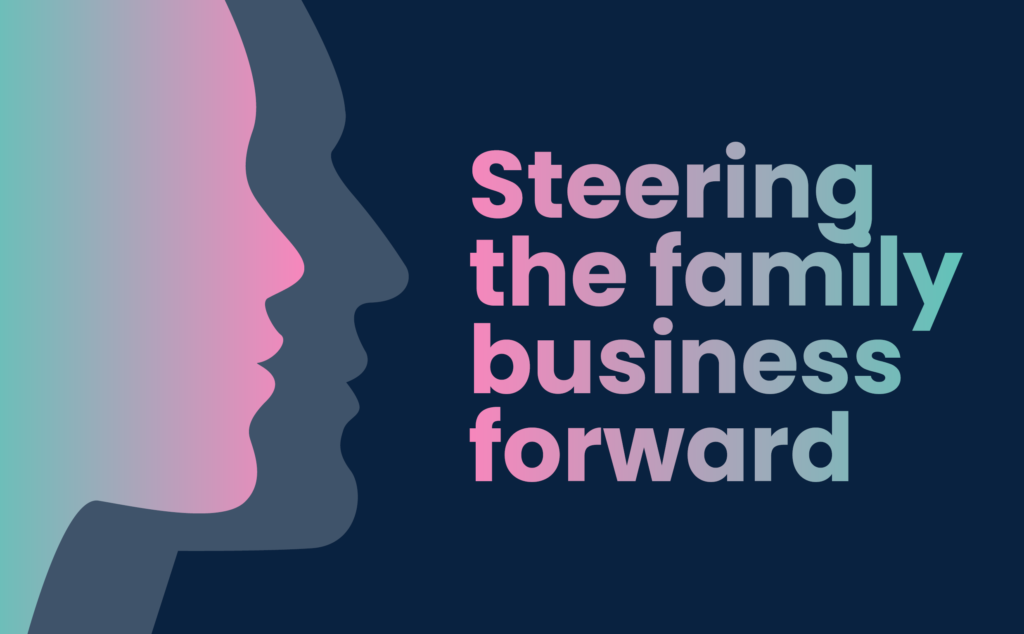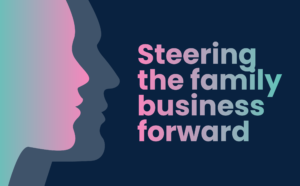
We are pleased to bring the next interview in our Family Business series featuring Neil Davy, Chief Executive Officer at Family Business UK (FBUK).
Saxton Bampfylde recently became a strategic partner of FBUK, joining a select and top quality group of advisory partners. With FBUK’s renewed focus on supporting family business and amplifying its importance to the UK economy and communities, we were delighted to talk to Neil as he reflects on the new opportunities and ambitions for the organisation and sector and particularly in the context of a new Government being elected.

Neil, it’s clearly early days for the Labour Government – but what do you hope a new government administration will mean for family businesses in the UK?
Labour campaigned very successfully on a platform of growth, and that is absolutely what we want – growth and prosperity – not just for the next five years, but for the long-term. And we’re looking forward to working with the new administration to fulfill that ambition.
I think it’s important that our new Government recognises that compared to some other models of business ownership, family businesses have unique characteristics, and different priorities. We’re keen these are understood and considered when thinking about new policies or regulatory reform.
Every business needs to make a profit, but family businesses tend to see profit as an outcome of managing the business and their people well, rather than the reason they’re in business in the first place.
Family businesses are hugely committed to the local communities where they operate, take a long-term view toward investment decisions, and are unhindered by pressure from anonymous shareholders looking for quarterly returns. And, as you would expect, they have a very clear focus on the next generation who will one day lead the business. Compared to other models of ownership – PLCs or private equity, for example – the ethos of family businesses are very different, as are their priorities, and how they choose to operate.
We hope the Government factors this into reviews of existing policy, and when proposing new legislation, so family businesses – and all businesses – are incentivised and encouraged to invest to secure long-term growth and prosperity.
What are the key priorities you are committed to address with the new Government on behalf of the FBUK community and wider British economy?
Family businesses are some of the UK’s most respected, well-established and best-known brands – and they need backing and support.
In November last year we launched our Family Business Manifesto, ‘Taking the Long-term View’. In that, one area we highlighted is Business Property Relief (BPR).
It’s important that policymakers and regulators fully understand BPR, why it exists, and the crucial role it plays in allowing family businesses to invest for the long-term, and build successful, multi-generational companies.
As we have highlighted in our most recent report, ‘Planning for the Long-term – Policies to Support Family Businesses’, BPR allows family business owners to pass the business on to the next generation without penalty and invest capital in the business to fund new products and services, training and recruiting of staff and expansion into new markets.
Without BPR, the businesses would need to withhold investment and put funds in place to pay a tax on the business when the owner passes away. In some scenarios, that would mean not just a lack of investment in people and jobs, and skills, but could result in parts of a business being sold off or cease trading entirely.
For decades, successive governments have maintained these reliefs because they understand that by incentivising businesses to create jobs and invest for the long term, they help the economy grow. What government wouldn’t want that?
It’s interesting to see Family Business leader James Timpson appointed to role of Prison Minister – in that vein what other lessons could the incoming government learn from the UK’s Family Business community?
It’s an interesting appointment, and from an FBUK perspective we’re delighted to have a leader of one of the UK’s best known family businesses appointed to a ministerial seat. It helps give family businesses a voice at the highest level of government.
Timpson’s commitment to employ past offenders, help them reintegrate into society and contribute constructively to the wider economy is a great example of how family businesses think and operate.
Across the family business sector there are so many examples of organisations doing phenomenal community-based activities which do not get profiled. We believe there is an opportunity to better showcase the amazing contribution they make. As a leader in the family business sector, James’ appointment also signals there’s an administration in place open to new ideas and different ways of thinking about how the voice of business is listened to at the highest levels of government.
Your FBUK Manifesto 2024 focuses on three key areas: People, Growth, Ownership and Succession. Can you share your top line ambitions for People and Succession?
A core component of the People area of our Manifesto is a proposal to replace the Apprenticeship Levy with a Future Skills Fund. This would offer more flexibility on how funds are allocated, remove barriers on spending between the home nations, and encourage upskilling and career-long learning.
The new Government focus on greater regional autonomy and decision-making should also ensure the needs of local businesses can be better addressed. We’d also want to see succession planning as a key component of government-based support schemes, which is essential to achieve long-term growth.
It’s probably worth highlighting that our Members tell us when they ask their employees why they decided to work for a family business, they say the emphasis family business owners place on personal values, workplace culture, and training and skills development compared to their experiences of working in PLCs or private equity backed businesses is a real differentiator. This is backed up by research FBUK commissioned in 2023, conducted by Censuswide, which revealed that 35% of the British public would prefer to work for a family business over other business models including private equity (11.4%), PLCs (13%) and venture capital (8%) and would also rather buy from a family business (44%) than from any other type of business.
How do you collaborate with other family business organisations internationally that can benefit the UK’s hugely important family-run organisations?
As a movement of family businesses, we focus our work on three areas.
Firstly, we advocate for policies and regulations that support family businesses and incentivise them to invest for the long term.
Secondly, we help family businesses access and apply thought leadership and best practice governance, stewardship, succession and other areas of leading a multi-generational business.
Thirdly, we look to amplify the voice and contribution that family businesses make to our economy and communities across the country through a range of different initiatives and campaigns.
Our recently launched ‘Back Family Businesses’ campaign is bringing together family businesses, and organisations that work with and for family businesses, to ensure the sector is better represented, understood, and supported.
Where we can find opportunities to work with them, along with other organisations that share our ambitions, we will absolutely do that.
An important partnership for us is the European Family Business (EFB) network, which works closely with senior policymakers in Brussels. Given the clear signals that Sir Keir Starmer is keen to re-set our political and economic relationship with counterparts in Europe, we see that as an important partnership to support.
Our FBUK Corporate Partnerships are also vital to our work. We are highly selective about which service providers to family businesses we go into partnership with, and the process of onboarding involves discussions with our Board Directors and FBUK Members to ensure they are confident that our Corporate Partners – which include Saxton Bampfylde – can offer best-in-class support and advisory services to our Members.
There are also other organisations in the UK that we informally collaborate with such as the Employee Owners Association (EOA). While employee ownership is a different model of business ownership, family businesses share many similar attributes, for example the focus they place on people in the business, and their communities.
For more information on Family Business UK, it’s work and to support the ‘Back Family Businesses Campaign’, you can visit: www.familybusinessuk.org or email info@familybusinessuk.org
Family businesses are integral to UK society and economy and play an enormous role in so many different industries every day. The business model requires leadership that balances entrepreneurship with stewardship, risk-taking with longevity: not an easy combination. At the very core of that is the focus on the people and a genuine commitment to culture and values, which cannot be underestimated.
Our interview series ‘Steering the Family Business‘ brings views from leaders across family business in the UK – family and non-family, executive and non executive. We hope it will encourage shared learning whilst increasing awareness of this vital part of our business fabric.
Saxton Bampfylde – Executive Search and Leadership Advisory for Family Businesses
For nearly 40 years Saxton Bampfylde has developed a particular niche in supporting organisations at key moments of growth and evolution. We have a well-established and longstanding experience in supporting family businesses through transition, leadership development, succession planning and in bringing on board new talent.
Find out more about our Family Owned Business Practice
Practice Contact
